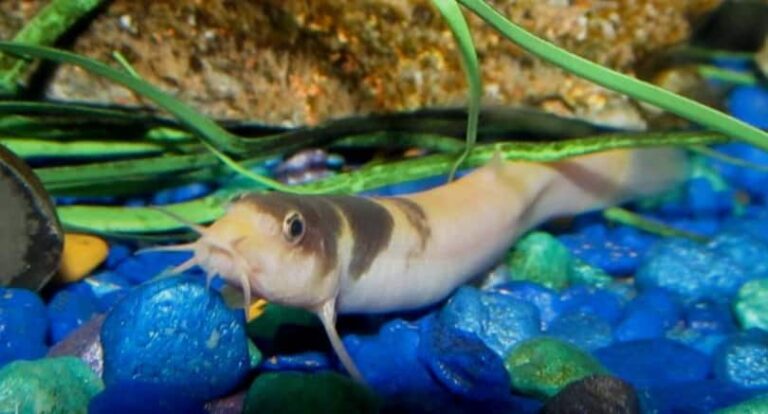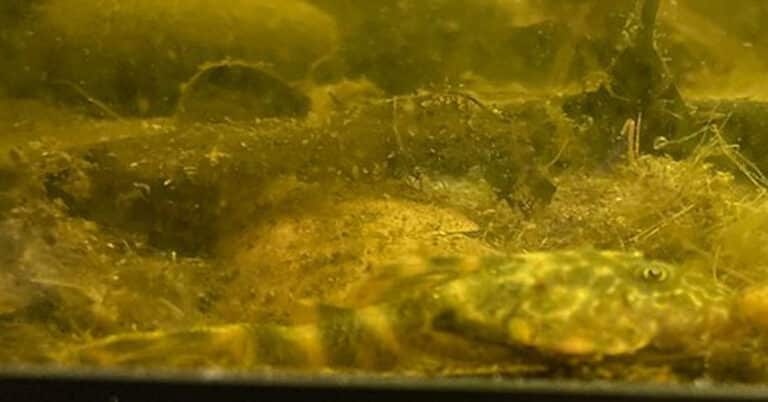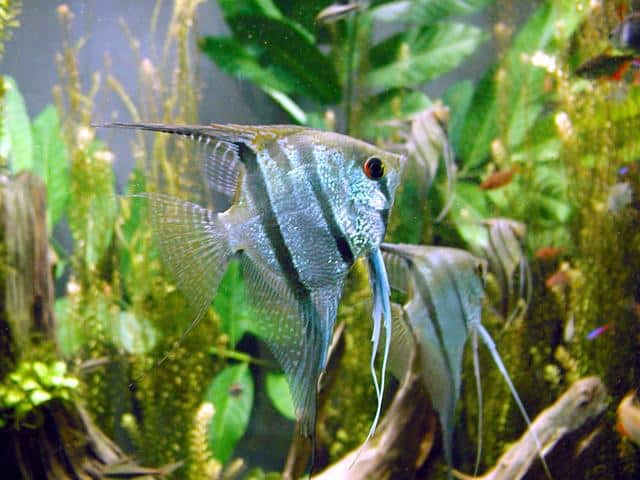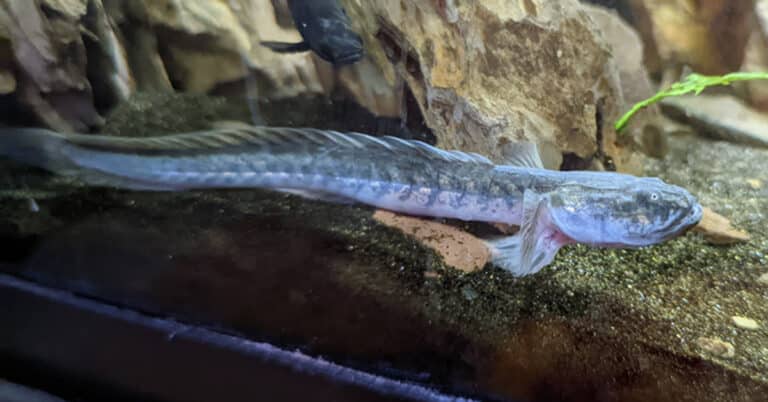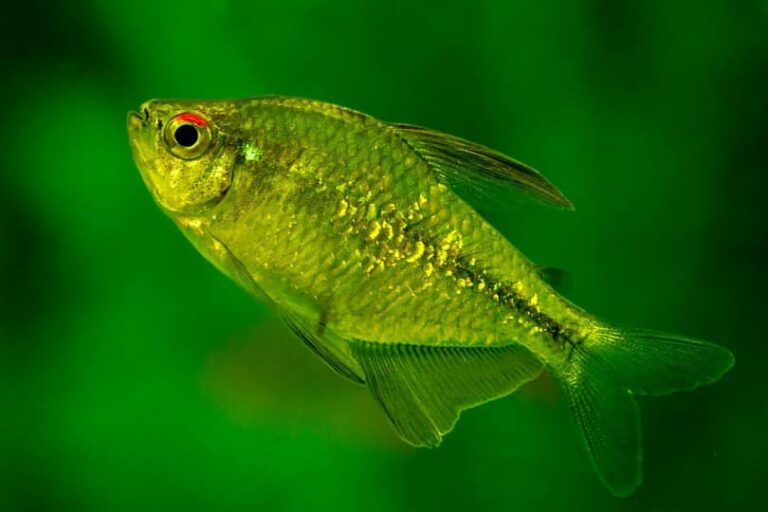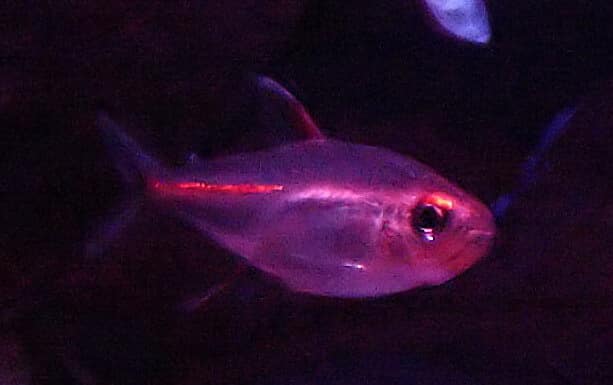Lemon Oscar – Personal Characteristics, Living Environment and Advice on Caring
If you are in search of a captivating, charismatic fish that possesses remarkable beauty and impressive intelligence, you should turn your attention to the Lemon Oscar. These magnificent aquatic creatures feature a vibrant yellow hue that’s truly stunning and will take your breath away even at first sight!
Lemon Oscars are known for forming meaningful connections with their caretakers. They have the remarkable ability to observe their surroundings, track their movements around the room, and even respond to your voice.
In this article, we will provide you with valuable insights on how to care for and appreciate these extraordinary aquatic companions.
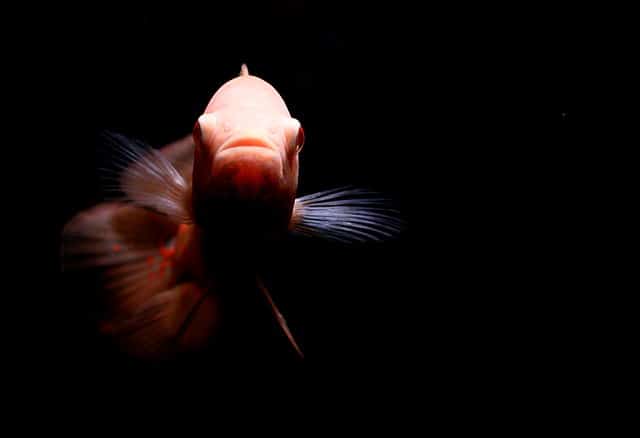
Origin & Natural Habitat of Lemon Oscar Fish
Lemon Oscars originate from the regions of South America, specifically the Amazon River Basin, Rio Paraguay, Parana, and Rio Negro. They were initially documented in 1831 by Louis Agassiz and scientifically classified as Astronotus ocellatus. The world of aquarium keeping has seen the emergence of numerous Oscar fish varieties, often the result of deliberate cross-breeding to enhance their colors and patterns, and the Lemon Oscar is among these stunning variants.
In their natural habitat, Lemon Oscars inhabit the calm, slow-moving waters of ponds, canals, and rivers where the substrate tends to be sandy or muddy.
During their juvenile stage, Oscars tend to congregate in small groups. However, as they mature into adulthood, they become more solitary in their habits.
Therefore, if you plan to maintain Lemon Oscars in your aquarium, it is advisable to house either a single individual or a pair if you have an interest in attempting to breed them.
What Makes Lemon Oscar Appealing?
The Lemon Oscar stands out as a sizeable freshwater fish celebrated for its predatory instincts and assertive demeanor. Its strikingly vibrant yellow hue envelops its entire body, making it an immediate focal point within virtually any aquarium. Beyond its appearance, this species distinguishes itself with its remarkable intelligence and its capacity for responsiveness to its caretakers.
Oscar fish possess a broad mouth and a distinctively prominent forehead. Their growth potential may enhance from 30 to 35 centimeters (12 to 14 inches). However, in their natural habitat, they can attain even greater sizes.
The coloration of Oscars is notably diverse, influenced by factors such as mood, age, and surroundings. Consequently, they can exhibit a broad spectrum of colors, encompassing hues of red, orange, yellow, and black, frequently adorned with stunning patterns and markings.
Lemon Oscar Care Guide: 3 Main Aspects
If you’re considering stepping into the world of Lemon Oscars, it’s important to understand their specific care requirements.
Let’s break down the 3 essential aspects of providing a healthy and happy environment for these stunning fish.
1. Tank Size
Young Lemon Oscar can thrive in a modest aquarium of approximately 30 gallons. However, it’s essential to bear in mind that these fish grow rapidly. Once they reach maturity, they require a more spacious habitat of at least 100 gallons or larger.
Lemon Oscars are sizable swimmers and, therefore they need a well-oxygenated environment and demand ample room to move around. For optimal choice, it’s advisable to opt for a longer tank with a generous surface area rather than a taller one.
Additionally, a secure lid for the tank is essential to prevent the fish from leaping out and causing water disturbances during feeding.
2. Water Parameters and Filtration
Lemon Oscars, as tropical aquatic inhabitants, thrive within a temperature range of 72 to 77 degrees Fahrenheit. Maintaining an appropriate pH level is crucial, ideally ranging between 6.5 and 7.2. It’s worth noting that these fish are not tolerant of brackish water.
To ensure the well-being of Lemon Oscars, it is imperative to maintain a stable aquatic environment with consistent water parameters. Alongside this, an efficient filtration system is essential. Regular maintenance involves conducting partial water changes of 20 to 40 percent each week, periodic cleaning and replacement of the filter media, and weekly gravel vacuuming.
Oscars are known for their messy eating habits, often expelling uneaten live fish and worms. If opting for live food, it becomes imperative to diligently uphold tank cleaning duties, which may require more frequent cleaning.
Despite their preference for a gentle water flow, a reliable filtration system is still necessary. Considering Lemon Oscar’s benefit from highly oxygenated water, it’s also advisable to incorporate at least one air stone into their habitat.
3. Tank Decoration
Lemon Oscars generally enjoy digging, so a sandy substrate is highly recommended. They also appreciate hiding places, particularly in the form of driftwood and rocks. When incorporating rocks into the setup, it’s important to securely bury them within the substrate, preferably against the tank’s glass bottom, to prevent any accidental dislodging.
While live plants offer numerous benefits to a tank, such as oxygenating the water and absorbing nitrates, it’s worth noting that Lemon Oscars tend to nibble on, tear, or uproot them. To address this, consider floating varieties of plants as an alternative.
Behavioral Characteristics of Lemon Oscar
Lemon Oscar fish are typically recognized for their aggressive and territorial temperament. When considering tankmates, it’s essential to exercise caution. It’s advisable to house them with other large fish, as they might perceive smaller or passive fish as potential prey, potentially leading to aggression.
To foster a harmonious environment, providing plenty of space, hiding spots, and visual barriers like rocks or plants can be beneficial. This will help to mitigate aggression and establish individual territories within the aquarium.
Lemon Oscars are renowned for their interactive nature. They display a high level of responsiveness to their surroundings and can even distinguish their owners. You’ll often find them eagerly approaching the front of the tank, especially during feeding times.
Besides this, Lemon Oscar exhibits intriguing behaviors such as digging, rearranging the substrate or decorations, and occasionally leaping out of the water. To prevent any escape attempts, it’s crucial to ensure your aquarium has a secure lid in place.

What to Feed Lemon Oscar Fish?
While Oscars prefer consuming live prey, they can also accept frozen, deceased, or pelletized sustenance as an alternative. Suitable nutrition for Oscars comprises diced earthworms, prawns, and fish. If opting for live meals, prioritize worms, feeder goldfish, and guppies.
Ideally, feed your Oscars 2 to 3 times daily, providing only what they can consume within a few minutes per feeding session
However, if you choose to offer live prey to your Oscars, be prepared to allow additional time for them to capture their prey.
Choosing Tank Mates for Lemon Oscar
It’s widely known that Lemon Oscar isn’t an ideal fish for community tanks. Despite their generally good temperament when alongside larger fish, Lemon Oscar fish have predatory tendencies and may prey on smaller fish. Therefore, it’s wise to refrain from housing delicate species like Minnows, Guppies, and Goldfish in the same tank as your Lemon Oscar. Additionally, avoid introducing snails, crabs, shrimp, and crayfish into the Lemon Oscar’s tank unless you intend for them to become fish snacks.
However, if you possess a spacious aquarium exceeding 200 gallons, you can potentially house them alongside other sizable, semi-aggressive species such as arowanas and Jack Dempseys.
Breeding pairs of Lemon Oscar can coexist, but mature individuals often become territorial with their kind. Thus, if your intention isn’t breeding, it’s generally safer to keep a single Lemon Oscar.
How Do I Prevent Lemon Oscar from Getting Sick?
The Lemon Oscar, on average, has a lifespan of 15 years, but with proper care, a stable aquatic environment, and a consistent food supply, it can thrive for up to 2 decades. This robust freshwater fish surpasses the longevity of many smaller, more fragile aquarium species.
However, before welcoming a Lemon Oscar into your tank, consider the level of commitment and dedication required to guarantee its well-being and longevity.
- One effective method is to clean plants and decorations by soaking them in a mixture of antibacterial medication and water, which helps eliminate parasites and bacteria.
- Be aware of the quality of their food as well. it’s crucial to buy live food from reputable suppliers. Before feeding it to your Lemon Oscar, make sure to remove any water it came in. Also, don’t forget to avoid collecting live food from natural sources.
- Finally, don’t forget to regularly clean the tank through regular water changes.
To stay proactive, make a daily routine of checking your fish for any potential issues. Lemon Oscar fish are typically active and have a healthy appetite, so if you notice any lethargy or loss of interest in food among your fish, promptly isolate them in quarantine to prevent disease spread.
Final Thoughts
By now, it should be clear that the Lemon Oscar is unlike any other fish. If you’re in search of a unique aquatic companion that combines stunning beauty with keen intelligence, the Lemon Oscar truly stands alone.
The best part is that this remarkable fish will not only enrich your aquarium but also offer a fulfilling, interactive experience unlike any other. So, invest in this extraordinary fish, and you’ll find yourself captivated by its qualities every day.

Nato is a content writer and researcher with a background in psychology who’s eager to explore the wonders of nature. As a travel enthusiast and animal lover, she hopes to inspire others to discover and cherish the beauty and importance of the natural world.


